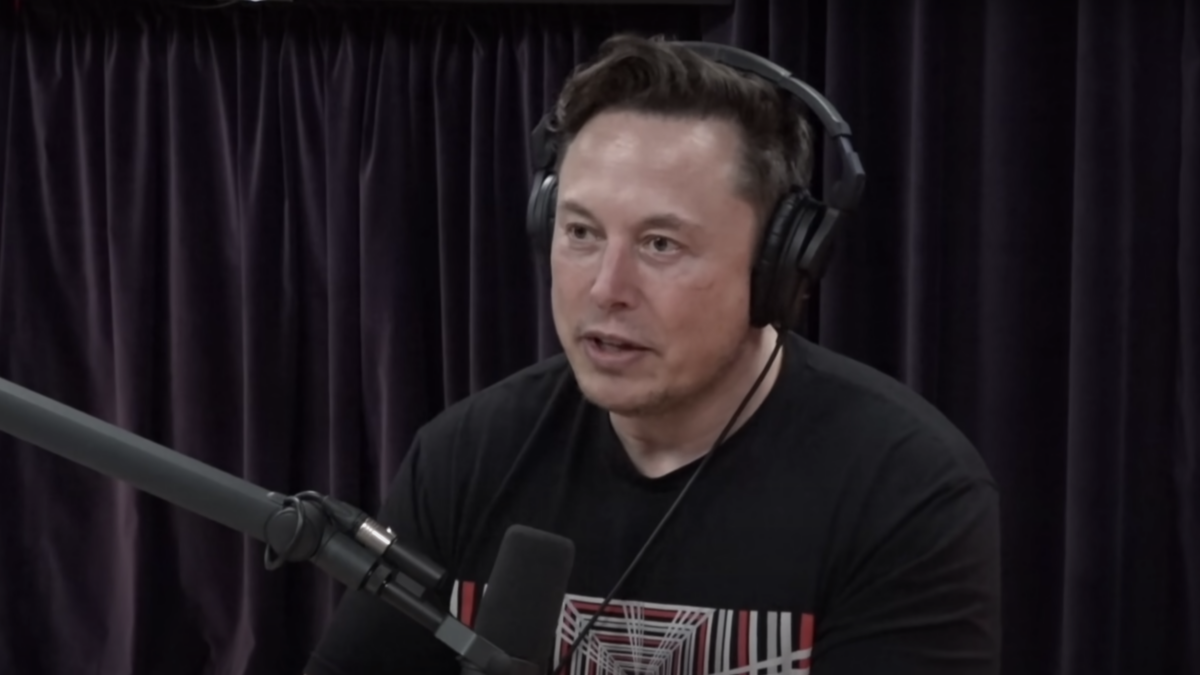Mega-billionaire Elon Musk is no longer joining Twitter’s board of directors, but that doesn’t mean he’s giving up on reforming the tyrannical Big Tech company as some corporate media outlets have speculated.
Twitter’s pro-censorship CEO Parag Agrawal announced Musk’s decision on Monday. Agrawal pledged that Twitter “will remain open to [Musk’s] input” but said his absence from the board is “for the best.”
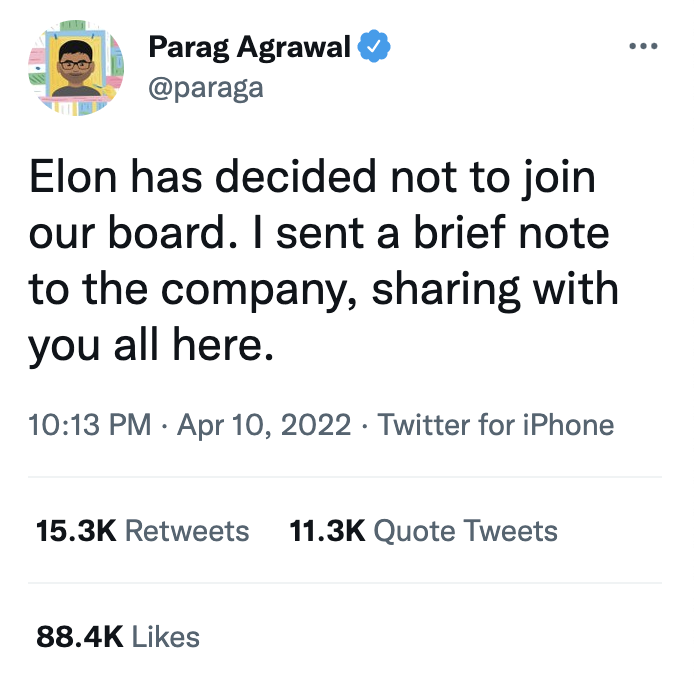
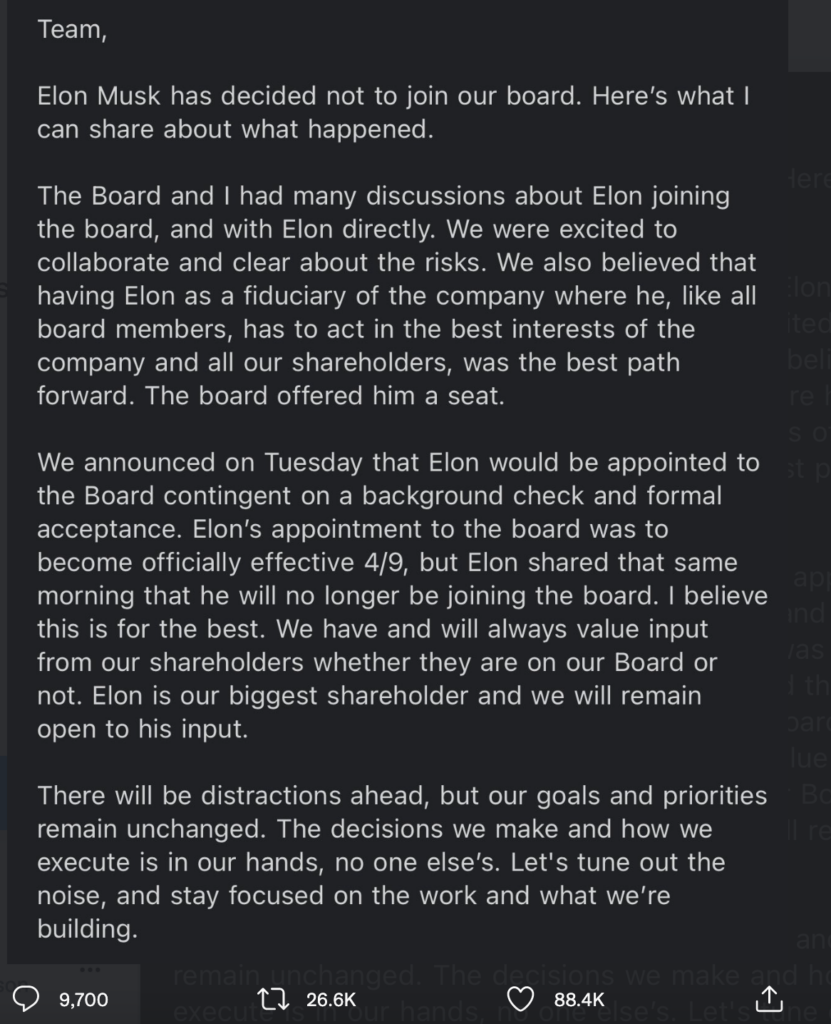
Musk became Twitter’s largest shareholder earlier this month after purchasing a 9.2 percent share of the company. Shortly after the monumental buy, Agrawal announced Musk would join the Silicon Valley giant’s board of directors.
Musk, a longtime critic of Twitter and Agrawal, appeared eager to implement changes that would benefit users feeling overshadowed by the company’s censorship track record. Even before he bought 73.5 million shares of Twitter’s stock, Musk polled his followers on how well the social media platform supports free speech as “essential to a functioning democracy” and hinted that “the consequences of this poll will be important.”
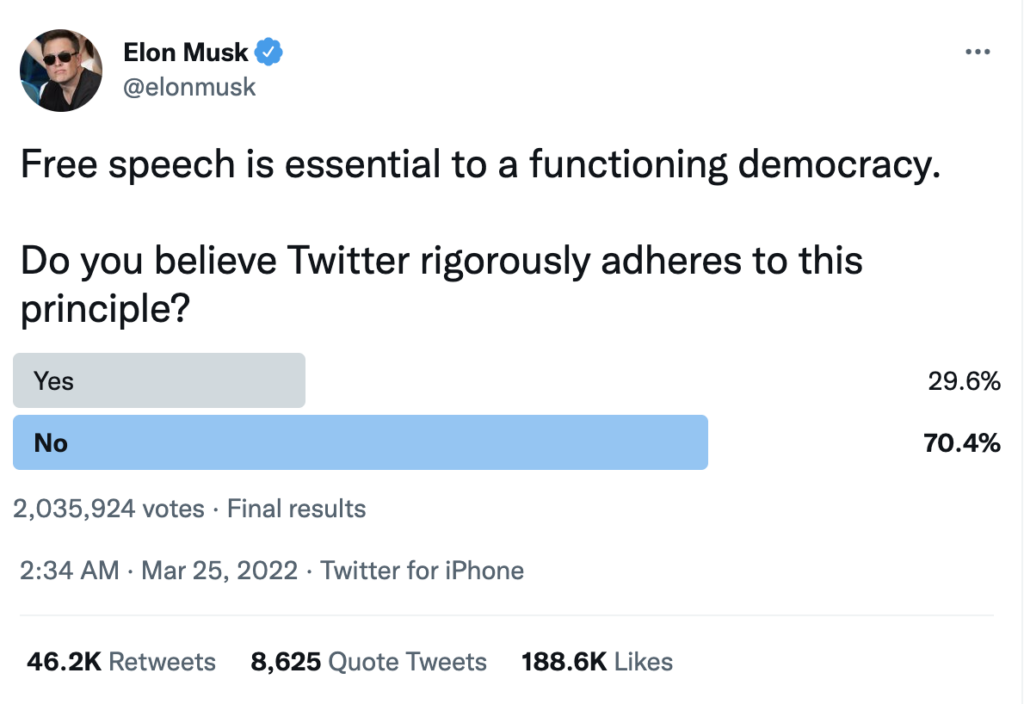

More recently, Musk poked fun at Twitter with a series of weekend polls asking if the company should “Convert Twitter SF HQ to homeless shelter since no one shows up anyway[?]” and “Delete the w in twitter?” He even asked, “Is Twitter dying?”
By the time Agrawal announced that Musk had reversed his decision to join the board, the Tesla CEO had deleted his online jabs at Twitter.
Some corporate media outlets and Twitter users speculated that Musk walked back his trolling “to avoid further attention from the U.S. Securities and Exchange Commission,” but something else seems amiss. How does someone so admittedly eager to reform a platform suddenly change his mind?
Musk has yet to publicly comment on his reasoning for rejecting a seat at the Big Tech company’s table, but you don’t have to read between the lines to know he felt forced out by Twitter officials who are not willing to modify the company’s speech control.
He even liked a tweet saying as much.
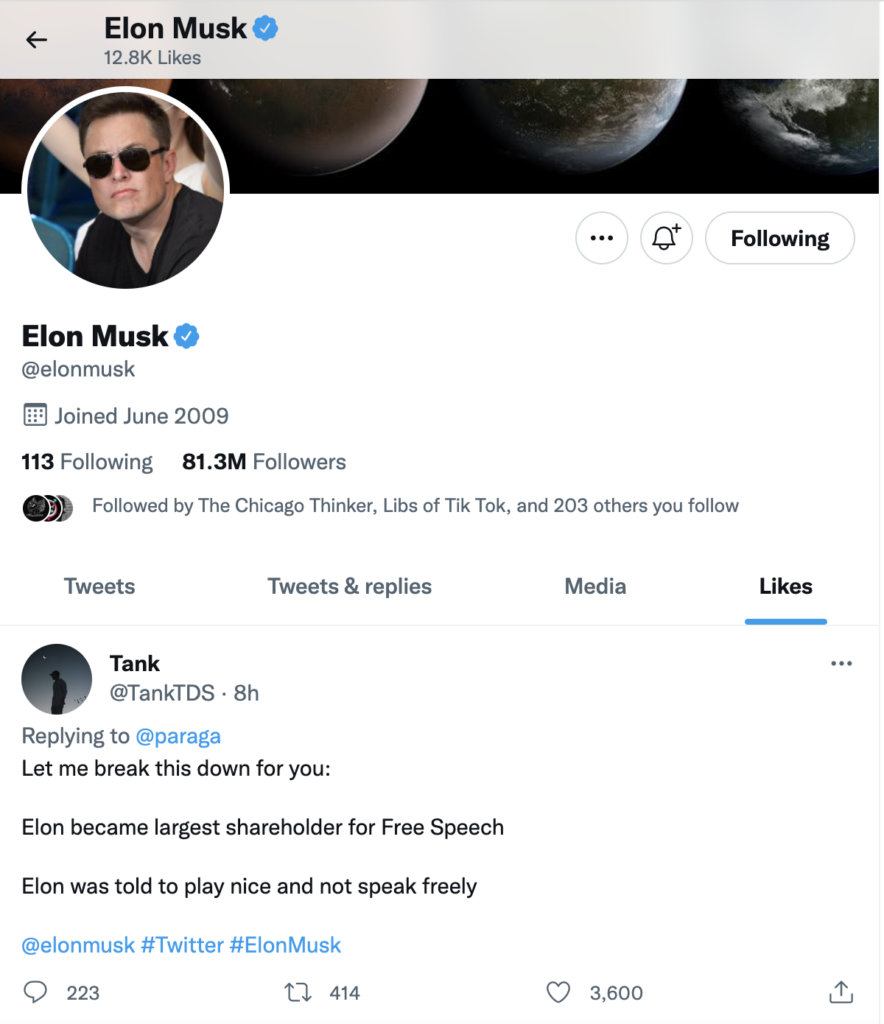
Agrawal was not shy in admitting that Musk’s duty as a board member would have required him to compromise and “act in the best interests of the company and all our shareholders.” His belief that Musk’s absence “is for the best” shows that the SpaceX founder’s penchant for free speech and the right to troll was never wanted on the Twitter board in the first place.
Already, Twitter employees who were publicly frustrated with Musk’s sudden impending influence over the company are celebrating his step back as a victory for the tech company’s increasingly woke agenda.
As satire site The Babylon Bee, a target of Twitter’s censorship, perfectly put it, “Twitter Workers Worried Elon Musk Will Turn Their Free Speech Platform Into Platform That Allows Free Speech.”
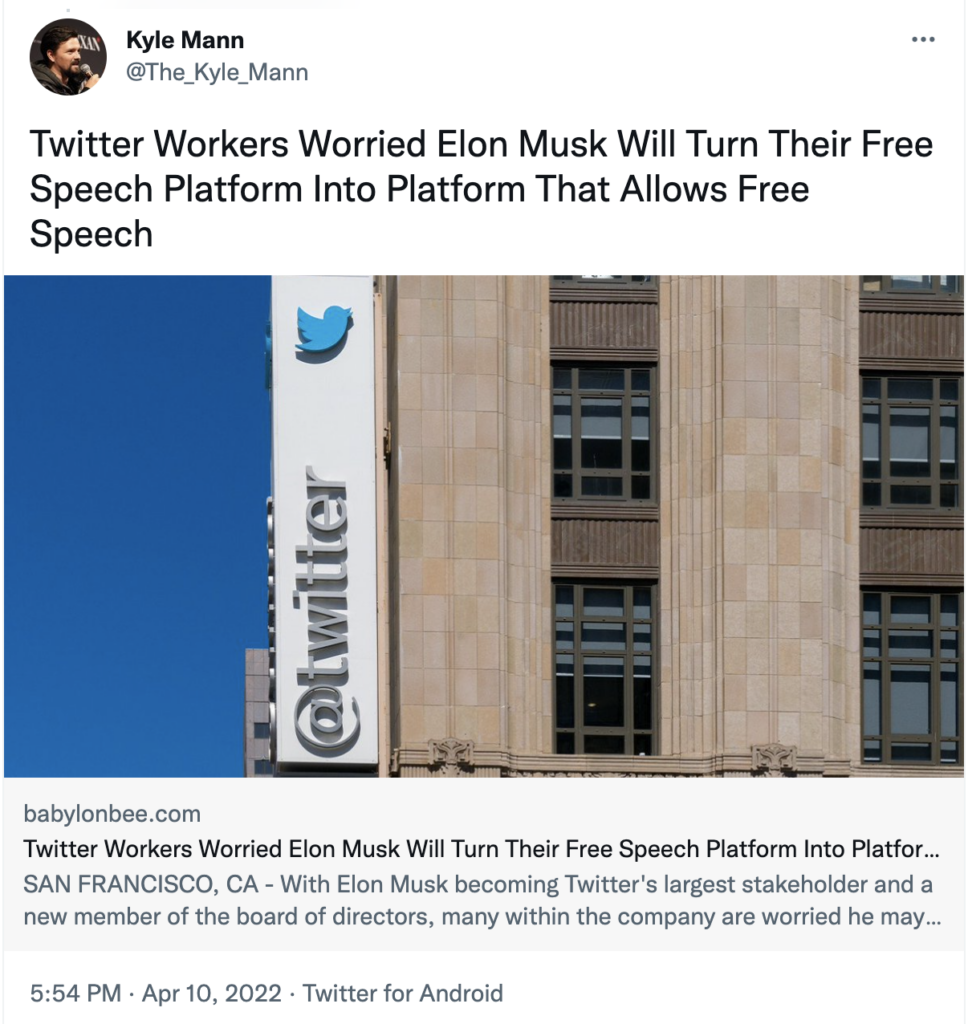
Musk was clear from the beginning that he wanted to change Twitter for the better by promoting free speech and implementing changes that would benefit all users, not just blue checks. That means Musk is a threat to everything Twitter wants to be. He’s not afraid to criticize the company’s many failures and illuminate its faults. He’s a liability to the company’s agenda and finances, and he can be a wild card, so it makes sense Twitter would want him gone.
The good news is that Musk is no longer capped to owning just 14.9 percent of Twitter as outlined in his original board agreement with the company. Musk buying up more shares is an outcome that pro-censorship media outlets fear.
Musk may not be joining the company’s board, but he still has the opportunity to leverage his stakeholder power to strip Twitter of its free speech facade. If we’re lucky, he’ll nuke the platform altogether.
